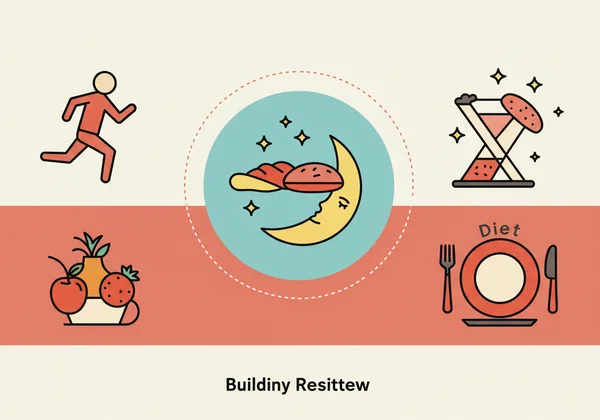How to Manage Neuroticism: 7 Strategies for Emotional Stability
July 27, 2025 | By Alicia Campos
Do you find yourself frequently caught in cycles of worry or overwhelmed by shifting moods? You're not alone. Neuroticism, one of the Big Five personality traits, is characterized by a tendency toward anxiety and emotional instability. But it's not a fixed destiny. This guide provides evidence-based strategies to help you manage neuroticism effectively, paving the way for greater calm and well-being. Understanding your own emotional patterns is the first step, and a scientifically-backed neuroticism test online can offer a clear, objective starting point.
Understanding Neuroticism & Why Management Matters
Before diving into solutions, it's essential to understand what neuroticism is and why proactively managing it can transform your life. It’s not about eliminating a part of yourself, but rather learning to work with your natural tendencies to build a more peaceful and fulfilling existence. Managing this trait effectively can reduce daily stress and improve your relationships and overall life satisfaction.
What Does High Neuroticism Look Like?
Individuals with high neuroticism tend to experience negative emotions more frequently and intensely. This can manifest as frequent worrying, anxiety, moodiness, and a higher sensitivity to stress. You might find yourself overthinking situations, dwelling on minor setbacks, or feeling easily irritated or sad. It's a fundamental aspect of personality, but knowing your score on a big five neuroticism test can provide the clarity needed to identify these patterns in your own life and start making positive changes.

The Benefits of Cultivating Emotional Stability
Working towards emotional stability offers profound benefits. When you learn to manage your emotional reactions, you gain a sense of control over your life. This leads to improved decision-making, as you're less likely to be swayed by momentary panic or anxiety. Relationships can become more harmonious, and your ability to handle workplace pressure and life’s inevitable challenges grows stronger. Cultivating this stability is a journey of personal growth that empowers you to live more intentionally.
Key Insight: The Two Sides of Neuroticism
It's crucial to recognize that neuroticism isn't entirely negative. While it's linked to emotional instability, it's also associated with greater self-awareness, preparedness, and a strong drive to improve. The goal isn't to eliminate this trait but to harness its strengths (like diligence and risk-awareness) while mitigating its downsides (like chronic worry and anxiety). This balanced perspective is key to effective management.
4 Practical Strategies to Reduce Neuroticism & Anxiety
Ready to take action? The following strategies are practical, accessible, and rooted in psychological principles. They are not quick fixes but rather tools to build a robust foundation for long-term emotional well-being. Incorporating them into your daily routine can significantly reduce neuroticism and its associated anxiety over time.
Harnessing Mindfulness and Meditation for Calm
Mindfulness is the practice of paying attention to the present moment without judgment. For someone with high neuroticism, this is a game-changer. It creates a space between a trigger and your reaction, allowing you to observe anxious thoughts without getting swept away by them. Start with just five minutes a day: sit quietly, focus on your breath, and gently guide your attention back whenever your mind wanders. This simple practice builds the mental muscle for calm.

Cognitive Behavioral Techniques for Managing Worry
Cognitive Behavioral Therapy (CBT) is a powerful approach centered on the idea that our thoughts, feelings, and behaviors are interconnected. A core technique is to identify, challenge, and reframe negative thought patterns. When you catch yourself catastrophizing, ask: What is the evidence for this thought? What is a more balanced perspective? This method helps break the cycle of worry and is a key tool in any neuroticism assessment action plan.
Building Resilience Through Healthy Habits
Never underestimate the power of your physical health on your mental state. Consistent, high-quality sleep is crucial for emotional regulation, a balanced diet can stabilize your mood, and regular exercise is one of the most effective natural anti-anxiety treatments available. Specifically, aerobic exercise like jogging, swimming, or even brisk walking has been shown to be a potent tool for reducing anxiety and improving mood. These healthy habits build a strong foundation of resilience, making you less vulnerable to life's stressors.

3 Long-Term Skills for Emotional Stability
While immediate coping strategies are helpful, the ultimate goal is to develop lasting skills for emotional stability. This involves deeper work on how you relate to yourself and others. True change comes from consistent practice and a commitment to personal growth.
Setting Healthy Boundaries and Practicing Self-Compassion
People with high neuroticism often struggle with setting boundaries, fearing disapproval or conflict. Learning to say "no" respectfully protects your energy and reduces sources of stress. Equally important is self-compassion. Instead of criticizing yourself for feeling anxious or upset, treat yourself with the same kindness you would offer a friend. This practice fundamentally changes your internal dialogue from one of judgment to one of support.
When to Seek Professional Support for Neuroticism
Self-help strategies are incredibly powerful, but sometimes professional support is needed. If your feelings of anxiety, worry, or sadness are overwhelming, persistent, and interfere with your daily life, it's wise to consult a therapist or counselor. They can provide personalized strategies and support. Remember, tools like our free neuroticism test are for educational and self-assessment purposes; they are not a substitute for professional diagnosis or treatment.

Your Path to Greater Emotional Well-being
Managing neuroticism is an empowering journey toward self-mastery. By understanding your unique emotional landscape and consistently applying these strategies, you can build remarkable resilience and lead a more stable, fulfilling life. The first step is always awareness.
Ready to gain that clarity? Take our free, science-based Neuroticism Test today to discover your results. You'll receive instant insights and a personalized analysis to kickstart your journey toward emotional balance.
Frequently Asked Questions About Neuroticism Management
Can neuroticism truly be reduced?
Yes, absolutely. While neuroticism is a stable personality trait, research shows that with consistent effort and the right strategies—such as those from CBT and mindfulness—individuals can significantly lower their neuroticism levels and improve their emotional stability over time. It’s about building new neural pathways and habits.
How can I calm down neuroticism in daily life?
Practice the "pause." When you feel a strong negative emotion rising, take a deep breath and give yourself a moment before reacting. This simple act can break the automatic cycle of reactivity. Combining this with the strategies above, like challenging your anxious thoughts, can make a huge difference in your daily experience.
Is neuroticism the same as anxiety?
No, but they are closely related. Neuroticism is a broad personality trait that describes a tendency to experience negative emotions, including anxiety, sadness, and irritability. Anxiety is one of the specific emotions that people high in neuroticism often feel. Taking an online personality test for anxiety can help clarify your patterns.
What are some immediate tips for coping with high neuroticism?
Ground yourself in the present. When you feel overwhelmed, use the 5-4-3-2-1 grounding technique: name five things you can see, four things you can touch, three things you can hear, two things you can smell, and one thing you can taste. This pulls your focus away from worry and into the present moment.
How to cope with neuroticism in a relationship?
Open communication is vital. Explain to your partner how your neuroticism manifests and what your triggers are. Practice active listening to understand their perspective. Couples therapy can also provide tools to navigate challenges, turning potential friction into an opportunity for deeper connection and mutual support.